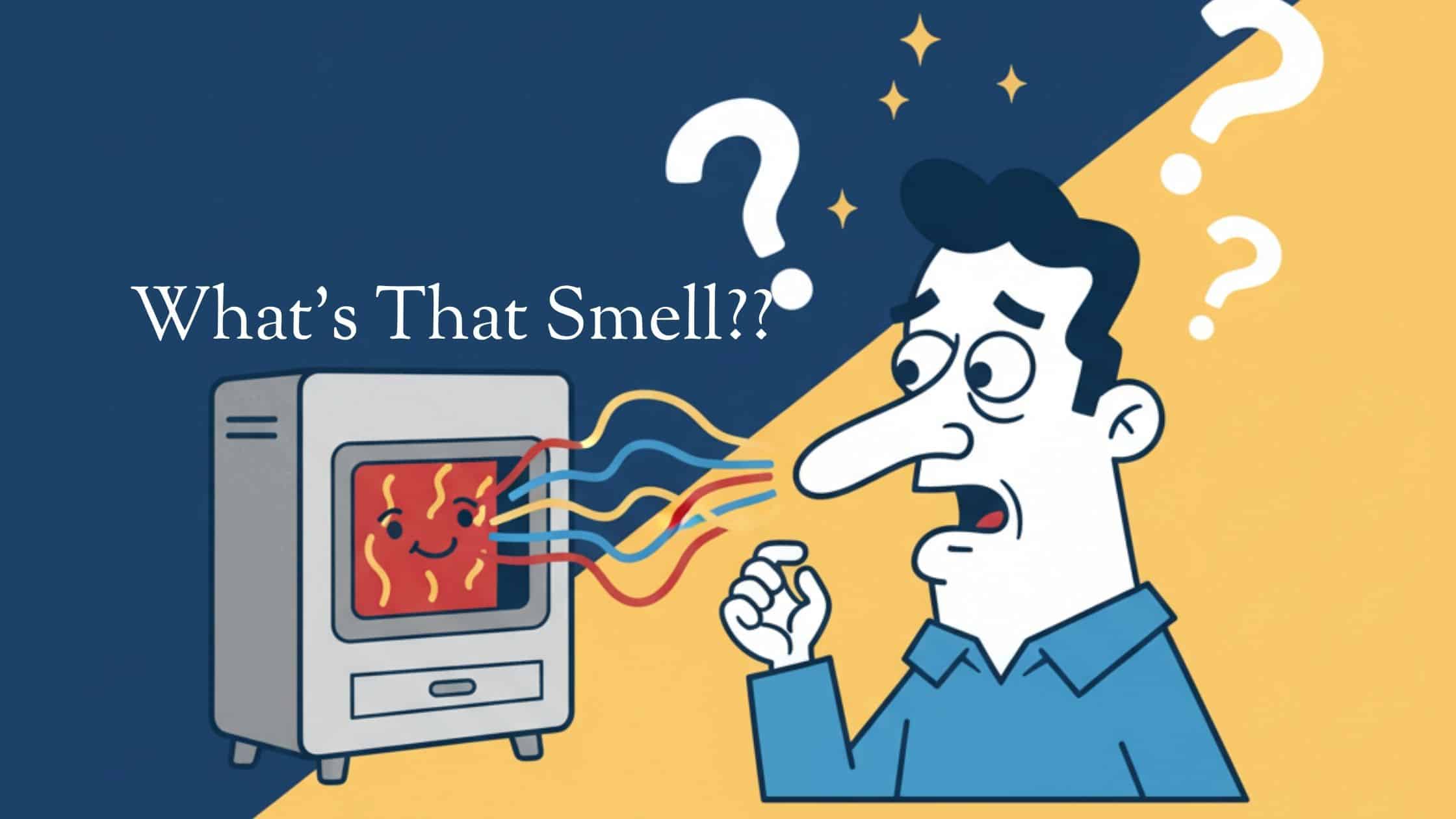
What a Smelly Heater Signifies
It’s that time of year in Central Texas. The first real cold front moves in, you switch your thermostat to “heat” for the first time, and then… that smell.
It’s a moment every homeowner knows. Is it normal? Is it dangerous? Is something on fire?
That smell is your furnace’s way of telling you something, and it’s important to know how to read the signs. We’ve broken down the 5 most common heater smells, what they mean, and what you should do about them.
1. The Smell: Dusty or Burning Dust
What It Means: This is the most common and least dangerous smell you’ll encounter. After sitting unused all summer, the inside of your furnace and your ductwork have collected a layer of dust and pollen. When you fire up the furnace, the heat exchanger and heating elements burn this dust off.
What to Do: Nothing, usually. This smell is normal and should completely disappear within an hour or two of the furnace running.
When to Worry: If the smell is very strong or persists for more than a few hours, it could be a sign of an extremely clogged air filter that needs to be changed, or a more serious issue.
- Pro-Tip: You can often prevent this smell entirely by following a Fall HVAC Checklist (like changing your filter) before you turn the heat on.
2. The Smell: Sharp, Acrid, or Burning Plastic
What It Means: This is a dangerous smell. It almost always indicates that a component is overheating, such as a failing motor or a problem with the wiring. The smell could be the plastic wire insulation melting or a failing circuit board.
What to Do: This is an emergency.
- Turn your heating system OFF immediately at the thermostat.
- Go to your home’s breaker box and shut off the power to your furnace.
- Do not turn it back on.
When to Worry: Immediately. This is not a DIY fix and poses a serious fire hazard. You need a professional technician to diagnose the problem.
- Action: Call for professional furnace repair right away.
3. The Smell: Rotten Eggs or Sulfur
What It Means: This is the most dangerous smell on the list. STOP WHAT YOU ARE DOING. This smell is the odorant that gas companies add to natural gas to alert you to a leak. A gas leak in your home is an extreme fire and explosion risk.
What to Do: ACT IMMEDIATELY.
- Do NOT turn any lights on or off.
- Do NOT use your phone or any electronics inside the house.
- Do NOT try to find the leak or shut off the furnace.
- Immediately evacuate everyone (including pets) from the house.
- Once you are a safe distance away, call 911 or your gas company’s emergency line.
- Action: After the utility company has declared your home safe, you will need a certified HVAC professional to find and fix the source of the leak within your heating system.
4. The Smell: Musty, Damp, or Dirty Socks
What It Means: This smell is not an immediate fire hazard, but it’s a sign of a problem that shouldn’t be ignored. It typically means there is mold or mildew growing on your furnace’s evaporator coils or in the drain pan (from the summer AC use). When the blower fan kicks on, it pushes that musty air all through your home.
What to Do: This is an Indoor Air Quality (IAQ) problem. A standard filter won’t fix it.
When to Worry: If you or your family members are sensitive to mold, this can cause respiratory issues. The buildup also makes your system work harder and less efficiently.
- Action: This requires a professional cleaning. A service technician can clean the coils, and you may want to discuss IAQ solutions like an air purifier to prevent it from coming back.
5. The Smell: Mechanical or Burning Oil
What It Means: This is a mechanical smell, different from the “burning plastic” scent. If you have an oil furnace, it could be an oil leak. More commonly (especially in Texas), this is a sign of a failing motor. The bearings in the blower motor may be seizing up, causing the motor to overheat and burn out.
What to Do: Turn the system off and check it out.
When to Worry: An overheating motor is a fire hazard and will eventually fail completely, leaving you with no heat.
- Action: This is a clear sign you need a heating repair technician to inspect the blower motor and other moving parts.
When in Doubt, Don’t Wait
Your nose is one of the best tools for detecting a furnace problem. While a dusty smell is normal, acrid, or sulfurous smells are serious warnings.
If you’re ever unsure about a smell, it is always safer to turn the system off and get a professional opinion. Don’t risk your family’s safety.
Feeling uneasy about a strange heater smell? Trust your gut. Contact Centex Air & Heat or call 512-303-6060 for a fast, reliable safety inspection.




